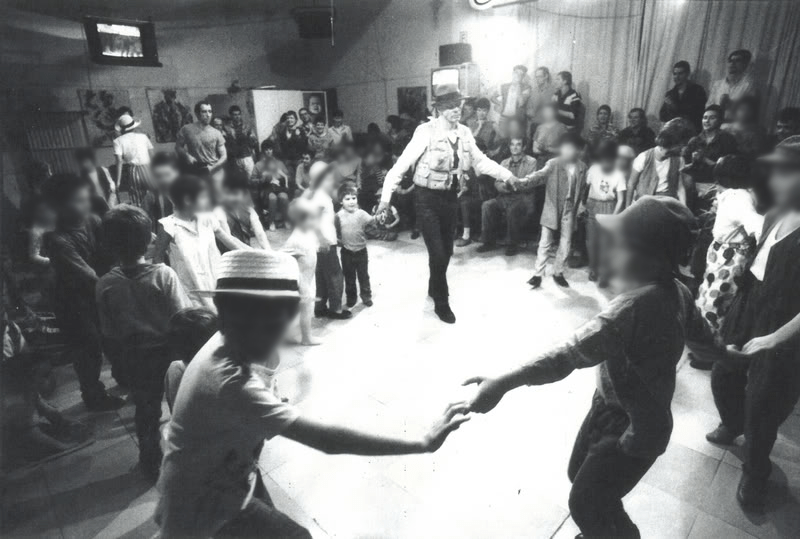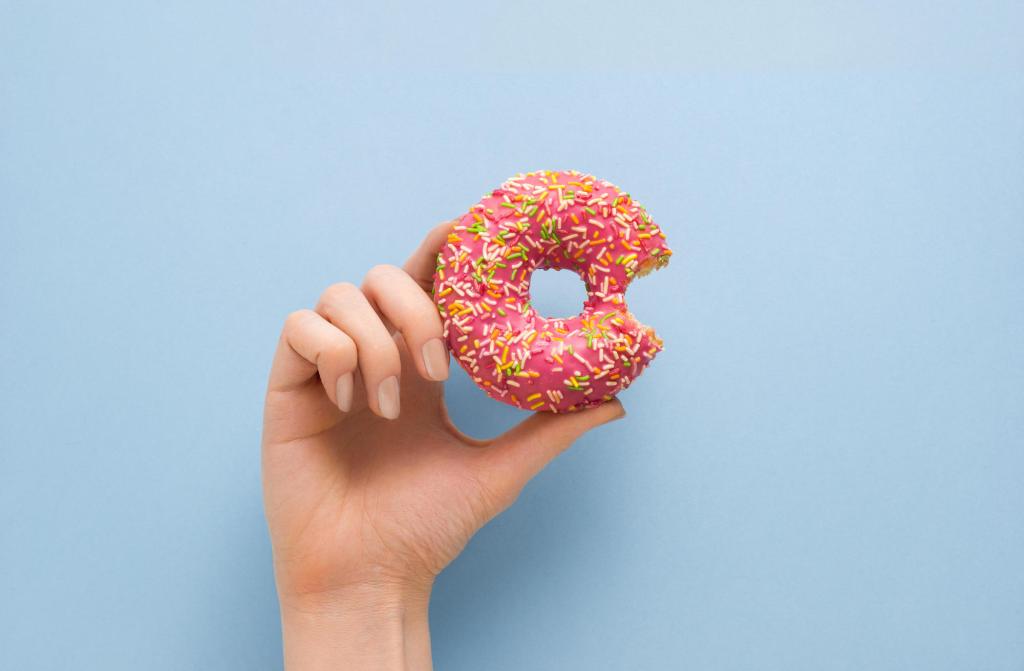It happened to me. I was laying in bed with my partner, wrapped in a snug embrace, when a glimpse of their bare skin ignited a wild, feral impulse within me: I had to bite it.
I’ve felt this urge before and I’m sure I’ll feel it again. When it arises, intense feelings of adoration, delight and confusion normally race through my body – biting offers me the somatic release that I desperately crave.
Videos by VICE
For the record, I never want to actually hurt my partner. It’s more that I just want to softly hold their arm or shoulder or wrist between my teeth – less rabid dog, more one that tenderly and adorably carries an egg around in its mouth.
Obviously, my partner hates this. Because I am not a dog; I am an adult human with poor impulse control. Though the urge is equal parts intrusive thought and genuine desire, I recognise that it might not be rational or socially acceptable. But recently, I’ve seen an influx of memes such as “the feminine urge to bite” that’ve made me feel slightly less deranged.
Is this normal? Is it a gendered thing? What the fuck is going on here? After putting a call-out on Instagram, my inbox was flooded with fellow biters spanning a range of ages, genders and sexualities. These were other seemingly normal people who also had this urge, and it wasn’t linked to some cannibal or vampire kink or whatever.
“I’d say part of it is a sexual thing, like it’s definitely a turn-on to bite my partner,” Vanessa, 23, tells me. “But then, the other half of me honestly sees it as the equivalent of squeezing a stress ball. Like, we’ll be walking in the street and out of nowhere I’ll ask to bite her arm.”
The feeling of release seems to be universal amongst biters. “I used to bite things like pillows and soft toys when I was a kid to deal with excitement, anger and overwhelming feelings,” says Murray, 25, who regularly bites his girlfriend. “I guess it could be tied to that when I feel overwhelmed with affection for my partner. I associate good emotions with it, I think. Kinda the way some people say when a puppy is so cute they want to squeeze it really hard or something.”
These expressions – biting your partner, squeezing a puppy, pinching a baby – have long been considered enigmas of human behaviour, but recent research has given them a name: dimorphous expressions. Coined by social psychologist Dr. Oriana Aragón in 2015, these are outward expressions that appear to juxtapose what we’re feeling on the inside.
Aragón’s research into the area was sparked in 2012 after watching a late-night talk show as a grad student studying emotion and expression. Leslie Bibb was a guest, and she remembers the actress saying that she saw a puppy that was so cute she just wanted to “kick it in the head”.
With Bibb’s teeth on show and her fists clenched, Aragón says, “if you took a snapshot of that moment, you would be sure that she was in an aggressive stance, even though she wasn’t.” The contrast influenced Aragón to investigate all of these things that “on the surface, look antithetical to how we’re feeling on the inside”. Thus, her research into dimorphous expressions and “cute aggression” was born.
Aragón tells me that these kinds of expressions are highly context dependent, meaning that there’s a range of factors that are necessary for something to be considered “cute” or “playful” aggression. Like, kicking someone’s baby out of the blue or punching a puppy or biting a stranger would not be classed as “playful aggression”, though you hope that would be obvious. This also goes for the way others might perceive our good-intentioned bites.
“If you were wanting to bite your partner, with zero context people might not understand that there’s a loving relationship there, or that person is being very aggressive,” she laughs. “But in that loving relationship, context is provided, and we now understand that this is a signal of affection.”
Still, I’ve got questions, like: Why do we even do this at all? “What we found in our original study was that when individuals were feeling this strong sort of adoration and then they showed the ‘cute aggression’, it helped folks to come down off of that very strong emotional experience – there was this sort of ability to help them to regulate their own emotions,” Aragón explains. “So, you’re with your partner, you feel this super strong urge that you just need to express, and then you do the bite and it helps you to cleanse yourself and cope with those feelings.”
This kind of “aggression” is pretty normal, too. “This is quite common, and numbers are quite high, within the 50-60 percent range,” Aragón tells me. Though her research was not directly on biting romantic partners – which would be very, very niche – she tells me that she’s found that the general umbrella term of “cute aggression” can explain a range of behaviours and similar phenomena can be explained by it.
Can’t wait to whack out those quotes the next time my partner denies me biting privileges. Bite away, boys.
More
From VICE
-

Children at the Friedrichshof Commune dance with renowned artist Joseph Beuys. Inka, aged four, holds his right hand. -

-



